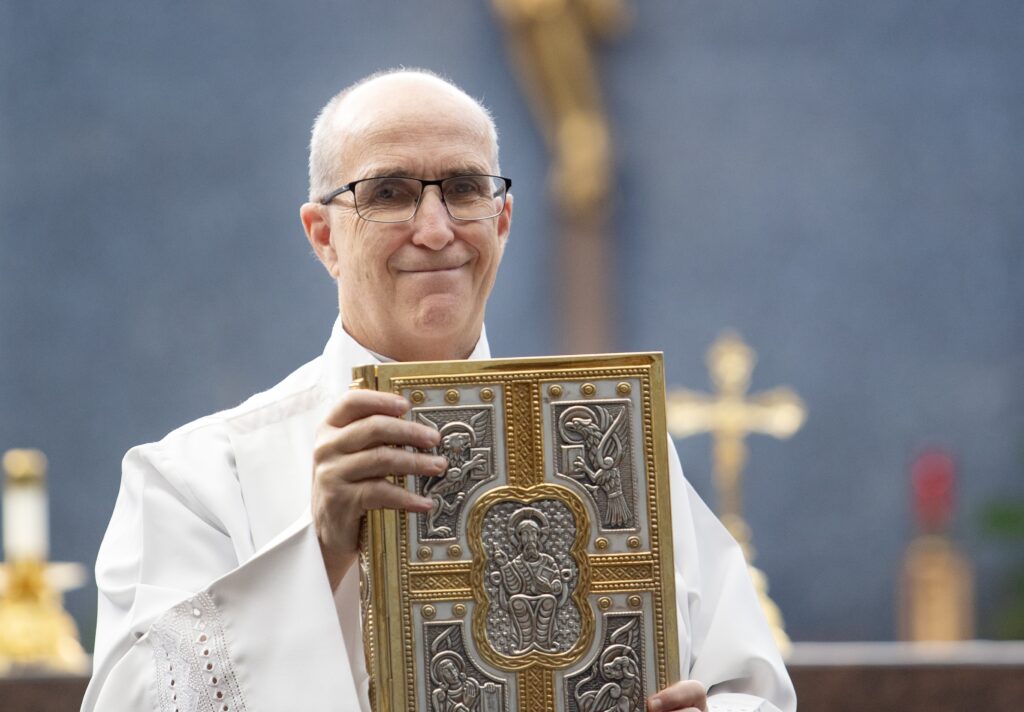
by Deacon Leon Suprenant
Deacons are ordained to serve the archdiocese through ministries of the word, liturgy and charity.
The deacon’s ministry of charity is about “animating the laity,” “enlisting others” and “marshaling resources” for the bodily and spiritual well-being of others. The deacon embodies Christ’s self-emptying love in his actions. The deacon sees the hidden Jesus in the poor, suffering and lonely.
In carrying out this mission, deacons are not alone. This is the mission of the church. In fact, one of the three super priorities of the archdiocese entails encountering Jesus by living the corporal and spiritual works of mercy.
Something about the works of mercy resonates with all people, even those who do not share our Christian faith. Especially during the holidays, we all experience a gut-level impulse to reach out and help those who are less fortunate than we are.
I have an old friend who likes to say, “Give ’em heaven!” Isn’t that what we’re all about as Catholics? We desire that the kingdom of heaven break into our broken, sinful world, and we do our part by being instruments of God’s mercy to others.
The ultimate goal, of course, is to facilitate life-changing encounters with Jesus. We don’t merely want the hungry to be fed, for example, but rather we desire everyone’s ultimate, eternal good.
Yet, we do want the hungry to be fed, the naked to be clothed, etc., because those are good and important things in themselves as well as an opportunity for them (and us) to experience the merciful love of God.
The works of mercy are signs that indeed the kingdom of heaven is in our midst. They point to Jesus Christ, the Word made flesh, who came to give us abundant life.
The “secret sauce,” if I may reverently say that, of the works of mercy is that they put a human face on the love of God.
Yes, sometimes the best we can do is help from afar, perhaps through a financial gift. Even Jesus did that on occasion, as when he cured the centurion’s servant from a distance or the 10 lepers only after they left his presence.
The more typical circumstance, however, is that Jesus looked people in the eye. He willingly gave people the gift of his time and his undivided attention. He was more present to others than they were to themselves. He knew what was on people’s hearts and where they were hurting.
When we perform the corporal or spiritual works of mercy, I think it is crucially important that we also make eye contact, that the recipient of our action feels “seen” and valued — not only by us, but by the One who saves them.
Give ’em heaven this Christmas, and always!






